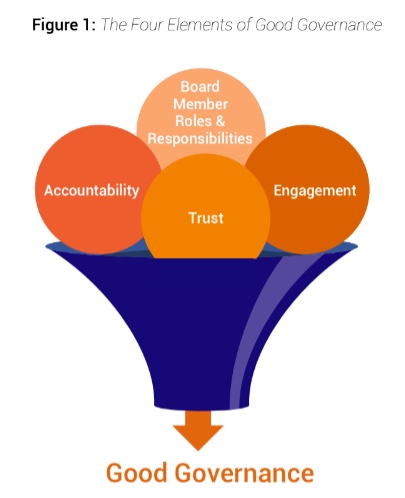2 minutes
New study suggests where to look for the answer.
We’ve been studying credit union governance for more than a decade now and amassed mountains of data on credit unions of all asset sizes and from all over North America. Perhaps the most frequently asked question we hear is some variation of, “How do we know when we’re getting it right? Our assets are increasing, and our membership is growing so we must be governing ourselves well. Right?”
As we prepare to publish The State of Credit Union Governance, 2023 Report, we looked closely at the data to see if it was clear to us what the key indicators were that a credit union was governing itself well—that as a credit union’s assets and membership grew, the organization’s governance practices were evolving too, both in terms of meeting changing regulations and best practices.
What we learned focused our attention on four things: 1) board members meeting their roles and responsibilities; 2) members of the credit union’s governing system (board and supervisory/audit committee members and senior leadership) meeting high accountability measures; 3) strong levels of volunteer engagement; and 4) building and maintaining a leadership culture of trust.

We found there is a significant positive correlation among each of these four areas of governance—meaning that if a respondent reports that their credit union is highly effective in one of the governing elements, they generally report that they are highly effective in the other three elements, too. Therefore, the four elements—accountability, board member roles and responsibilities, engagement and trust—are inextricably linked and together provide tremendous insight into the strength of your credit union’s governance.
These findings identify the four elements as likely keys to unlocking the secret to good governance and creating a high-functioning board. In addition to pinpointing areas of focus, our findings suggest that actions to improve the effectiveness of one of the four elements may lead to improved effectiveness in the other three elements.
So, as we begin to more succinctly answer the question, “How do we know when we’re getting it right?” we can look to these four areas of governance for some indication of whether your credit union’s board and executive leadership are “getting it right” or not, and whether further study is necessary to identify which element of your governance needs your focus to ensure the continued success of your vision and mission.
Jennie Boden serves as Quantum Governance’s president of consulting services. She has more than 30 years of experience in the credit union and nonprofit sectors and served as the chief staff officer for two nonprofits before coming to Quantum Governance. Gisele Manole is director of external affairs and a consultant with Quantum Governance.
Quantum Governance provides credit unions, corporations, nonprofits, associations and governmental entities with strategic, cost-effective governance, ethics and management consulting, facilitation, and evaluation. With more than 50% of Quantum Governance’s clients representing credit unions, the organization fields more engagements in the credit union community than in any other. Quantum Governance is a CUES strategic partner in the field of governance and is home to more strategic governance experience than any other practice in the country. The firm is a unique L3C organization that integrates the best elements of both the for profit and nonprofit communities into one practice. It is a low-profit, limited-liability service organization dedicated to the public good and one of the very first such legal hybrid organizations in the United States.







